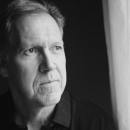Moses got a burning bush. Noah was told to build an ark. Wouldn't it be nice if your calling was just as obvious? In his new book Intentional Christian: What to Do When You Don't Know What to Do (Discovery House), author Daniel Ryan Day provides guidance for those who ask, "What am I supposed to be doing with my life?"
Daniel Ryan Day is an author, speaker, blogger, and fellow believer who spent quite a few years trying to figure out God's call on his life. His search for answers-accompanied by the pursuit of a master's degree from Fuller Theological Seminary-led him to discover that God reveals every Christian's broader calling within the pages of Scripture. Daniel attempts to live out intentional Christianity in North Carolina as a husband, father, and businessman.
Q: Daniel, thanks for doing this interview with us. Let's start with yourself, how did you feel the call to write?
I don't know that I've ever felt "called" to write. I've just always written. I'm a communicator-it shows up on strengths tests, people I know describe me as a communicator, and I find it easy to put ideas into words. As a result of this, I've always processed my walk with God through writing. In the same way, I also want to help others. As a communicator, I've used writing-letters, blogs, notes, books, etc...-to encourage, inspire and connect with people. As I've used my desire to write, and taken advantages of opportunities to help and connect with others through writing, I've had more opportunities. So instead of describing my journey as following a "call to write," I would say that the Lord has directed my steps to opportunities that require writing as a way to help others.
Q: What inspired you to write this new book "God, Why Am I Here?"
Intentional Christian begins with my own story. I grew up in a church that emphasized the call of God. Specifically, my church taught that God has a unique and specific calling for each person. For much of my life, I was looking for that "call" from God. I didn't expect the phone to ring, and to answer it to hear God's voice saying, "Daniel, this is what I want you to do." But I did expect God to tell me his will for my life, especially as it relates to finding the perfect job. Unfortunately, God was quiet, and stayed quiet. He wouldn't tell me what he wanted me to do.
As a result, I became frustrated with God. I was so frustrated, that I performed an internet search for the following phrase: "what is God's will for my life?" I came to a list of verses, and it was the second verse on the list that caught my attention, "Rejoice always, pray continually, give thanks in all circumstances; for this is the will of God in Christ Jesus of you." Wait?! What?! I had been searching for God's will for my life for how long, and there's a verse in Scripture that reads, "...this is God's will for you?" I was blown away.
I started looking for other verses, and found many passages of Scripture that describe both God's will for our lives and his calling. As a result of this discovery, I felt a weight begin to lift off my shoulders. All of the stress and pressure I felt to figure things out began to slowly, very slowly, fade away. I realized that God doesn't necessarily call us to a specific job, but he does call us to a specific way of living. As a result of this, God's will for our lives can be lived out in any job, regardless of what it is. I found freedom and hope in these passages, and I wrote the book because I wanted to share that freedom and hope with all of the people like me-who are stressed out and frustrated because they can't figure out what they're supposed to do with their lives.
Q: In a few sentences, what is the book about?
I think we as a culture place a lot of pressure on young adults to figure out the rest of their lives when they are between the ages of 18 and 24-especially as it relates to choosing an occupation. As a result, we are left with over-stressed teenagers, major-less college students, and many young adults (and some adults in their 30s and 40s even) who bounce from job to job trying to figure out the answer to the question: what am I supposed to do with my life? The purpose of this book is to help you and me take a few more steps down the road to discovering God's calling on our lives. My hope is that you and I will get to the end and know exactly what we should do next-even if we don't know for sure what we should do for the rest of our lives.
Q: In the book, you noted the difference between specific callings and general callings. What's the difference between the two?
Most of us are familiar with examples of Specific Calling in Scripture. We think about Noah, Moses, Abraham, Jonah, Paul and the Disciples-people who were specifically called by God to do something specific. Most of us, however, are not as familiar with the many "common callings" of Scripture. Did you know that there are multiple passages of Scripture that describe God's will for your life? It's true. Think about Micah 6:8-God wants you to be someone who seeks justice, loves mercy and walks humbly with God. Earlier in this interview I mentioned 1 Thessalonians 5 which says that God's will for your life is to rejoice always, pray continually and give thanks in all circumstances. The "common callings" of God are common because they apply to all Christians regardless of what job we have. Not everyone will have a specific calling from God, but everyone is called to live according to the common callings the Bible teaches.
Q: Are you saying that we should pursue more the general callings God has laid out in Scripture rather than our specific callings? Why?
Much of modern Christian culture emphasizes being specifically called by God to a specific job that fits within our strengths and skill sets. This "call" from God is presented to us as something that we will want to do, and will bring purpose and fulfillment to our lives. The problem with this perspective, is that it doesn't line up with several of the examples in Scripture of God calling specific people to do specific things.
First, Noah was not called to a specific job. Noah was called to a specific task that took up a relatively small portion of his life. In fact, building the ark is a small part of Noah's story. The bigger story, is what Noah did for the first 500 years of his life, "Noah was a righteous man who walked with God" Genesis 6:9).* Or what about Abraham? Was Abraham called to a job? No. He was called to move to a different land. What about Moses? Moses was called to a specific job, but it was completely outside of his strengths and abilities. Moses wanted nothing to do with the call of God-he even asked God to choose someone else. Moses isn't the only one: think about Jonah. Jonah disliked the call of God so much that he tried to sail to the other side of the known world. And then there's Paul-Paul, even as a missionary, was still a tentmaker.
I think these stories show us that God doesn't always call people to specific jobs. When he does, however, it will not necessarily be to a job we want or to a job that fits within our skills and abilities. As a result, I think the argument can be made that we are NOT supposed to focus on specific callings, but instead on living faithfully with God. Specifically, I think the story of Noah is the best example of how we should live-we should walk with God (just like Micah 6:8 says too), and trust that if God has something specific for us to do, he will show up and let us know what it is.
*The point about the first 500 years of Noah's life is borrowed from Phil Vischer's book, "Me, Myself and Bob"
Q: Then what about our specific callings? Are they not relevant? How do the two callings interact?
If we look at Scripture as our teacher on what a specific calling from God looks like, we will need to recognize a few things. First, not all Biblical characters received a call from God. Secondly, not all Biblical characters are called by God to a specific job. Abraham, for example, was called to move to a new land.
Thirdly, when God calls someone to do something specific he makes it VERY clear, and doesn't let them weasel their way out of it. When God called Moses, he showed up in a bush that burned but didn't burn. God spoke audibly to Moses, and told him exactly what he wanted him to do. God didn't let Moses get out of his specific calling either. God had chosen Moses to lead the people out of Egypt and through the wilderness, period. End of story. Moses was the man, and he wasn't able to change that.
Fourthly, the story of Jonah reinforces that God won't let us out of his specific calling for our lives. Jonah tried to get away from his call by sailing to the other side of the known world. What does God do? God has Jonah eaten by a fish, and the fish swims Jonah to the closest shore near Ninevah. It didn't matter that Jonah wanted nothing to do with the call of God. It didn't matter that Jonah tried to get away from the call of God. God had him do it any way.
Finally, Paul was also clearly called by God. Jesus blinded Paul with a bright light, and spoke to him within earshot of his traveling companions. Again, God makes his specific callings VERY clear.
So if you believe you've been called by God to do something specific, ask yourself this question: Did God make it clear that he wanted you to do whatever it is that you feel he said you should do? If so, you better do it! If not, you may be swallowed by a big fish and forced to do it anyway. Obviously, I'm using a little hyperbole here, but the truth is that specific callings from God are very clear, and did not happen to everyone in the Bible. As a result, our job is to focus on being like Noah-walking faithfully with God, and trusting that if God has something specific for us to do, he will show up and make it clear to us.
Q: Practically, if you have a young man sitting in your office and he's confused about what he should do in life. What would you say to him?
First of all, this happens a lot! I work in a business where our primary workforce is young men and women in high school and college. I also work with many adults who are also in transition-looking for the right job, but having a hard time finding it. As a result, these conversations happen often. If the person is a Christian, I go straight to Proverbs 16:9, "The heart of a man or woman plans his or her way, but it is the Lord who directs his or her steps."
I tell them that it's okay to plan their way. It's okay to take a strengths test, and try to find a job that fits within their passions. I even encourage this, and offer to help them recognize their gifts and abilities. Ultimately, however, God will direct their steps to exactly where he wants them to be. He or she may not recognize it. He or she may not see the steps in front of them. One day, they may end up like me and look back over their lives awestruck by the way God has directed them to exactly where he wants them to be.
But this is my primary point: God will direct their steps. In fact, he already is. Our job is not to worry about the specific calling of God or the specific job that we are supposed to do. Our responsibility, through the work of the Holy Spirit in our lives, is to faithfully walk with God today, in whatever context he places us.
Q: You wrote in the book, "your job doesn't define you, your worship does," what does this mean?
Your job doesn't define you, your worship does. I know this is hard to believe. We live in a culture that tells us a job-especially a dream job-is the purpose of our lives. But it's true-my life and your life is not defined by the quality of our jobs, but by the quality of our worship. That call to worship is simply the common calling to love God with all that we are and to love one another. I know it doesn't feel like enough to be successful in life. We want to do more for God. In many ways, we like TODO lists that map out a path to accomplishment and success. But we are not called to accomplishment and success at work, we are called to walk faithfully with God.
My buddy Dan lives in Rwanda as a missionary. I remember asking him one question in particular that led to an answer I will never forget: "Dan, what is the biggest lesson you've learned in your time here in Rwanda?" I asked.
He didn't hesitate with his response. "I've learned to redefine success," he explained. "When we moved here, I was caught up in how to prove to the people back home who supported us that their money was well spent. I needed to prove to them that our ministry was effective. Unfortunately, ministry here was very slow, and there weren't any good measurables to point to and say, 'See, here's the difference we're making in Rwanda.' At first, I was ready to abandon the ministry, but God had other plans.
"God began to show me that success is not defined by the numbers of people we can influence, but it is defined by our faithfulness to do whatever God has placed in front of us to do, today."
May you and I learn what it means to walk faithfully with God. May our definitions of success in life not be defined by the quality of our jobs, the amount of money we make, or the number of people we influence. But instead, may we define success by our faithfulness to do whatever God places in front of us to do today. With God's help we can!
Q: How will this book be a blessing to those who choose to read it?
My prayer is that this book will offer hope and freedom to two groups of people: first, that it will offer hope and freedom to those who are struggling to figure out what they should do with their lives. They are overwhelmed by the number of options. Or maybe they know exactly what they want to do, but they can't get there. Or maybe they have no idea what they want to do, and they don't understand why God is not being more active in telling them what they should do. I want them to find the freedom and hope that I have found in the common callings of God.
Secondly, I pray that this book will provide the "next steps" for anyone who's trying to figure out how faith in Christ affects every day life. Maybe they are happy in their day-job, but they read the Scriptures and know that God wants them to do more. They feel that their faith is stuck in a Christian bubble at Church, and they want to live out their faith and make a difference in the world.
Here's the truth: this is the book I wish I had nearly 15 years ago when I was struggling to figure out what I should do with my life. If people will give it a chance, and crack open the pages with an open heart and mind, I think they may find the hope of God's calling that they are searching for. It's not something that I've created. It's not something that I've come up with. The hope of God's calling is right in front of us in Scripture, and we just need God's eyes to see it.



















